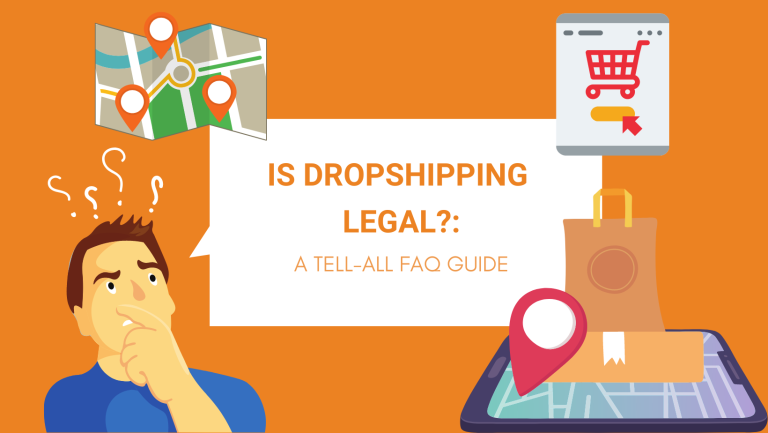Dropshipping is one of the easiest ways to start an online business, but many beginners wonder: Is dropshipping legal?
With so much misinformation online, it’s easy to get confused about whether this business model follows the rules.
The short answer? Yes, dropshipping is legal. However, there are certain risks and regulations you need to be aware of. From supplier agreements to tax obligations and marketplace policies, running a dropshipping business the right way requires careful planning.
In this guide, we’ll break down the legal side of dropshipping, covering everything from business licenses to trademark issues and compliance with popular eCommerce marketplaces.
Whether you’re just getting started or want to make sure your store is legally protected, this guide will give you the answers you need.
Let’s dive straight into it!
What Is Dropshipping?
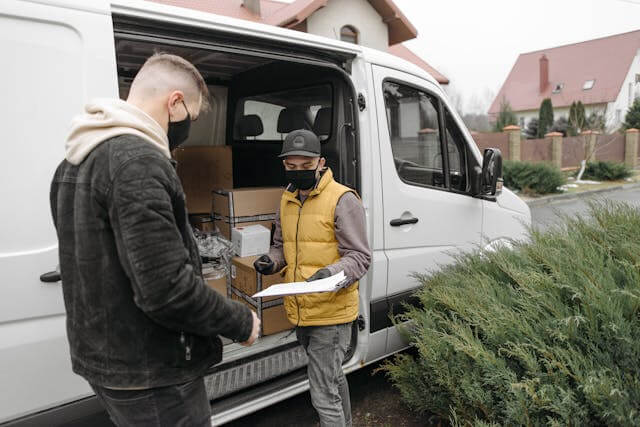
Dropshipping is an eCommerce business model where you sell products without holding any inventory.
Instead of stocking goods, you partner with a supplier who ships orders directly to your customers.
This means you don’t have to worry about warehousing, packaging, or shipping – your main focus is marketing and customer service.
Here’s how it works:
- A customer places an order in your online store.
- You forward the order details to your supplier.
- The supplier packs and ships the product directly to the customer.
Since you don’t need to invest in inventory upfront, dropshipping has a low barrier to entry, making it popular among new eCommerce entrepreneurs.
However, it also comes with challenges, such as supplier reliability, profit margins, and handling returns.
Is Dropshipping Legal?

Yes, dropshipping is completely legal. It’s a widely used business model in eCommerce, and many major online retailers, including Amazon and Walmart, allow third-party sellers to dropship products. However, just because dropshipping is legal doesn’t mean there aren’t rules to follow.
To run a legitimate dropshipping business, you need to:
- Sell Legitimate Products – Avoid counterfeit or trademarked products without authorization. Selling fake goods can lead to legal trouble.
- Follow Tax Regulations – Depending on your location, you may need to register your business, collect sales tax, or pay VAT.
- Comply with Consumer Protection Laws – Be honest in your marketing, provide clear refund policies, and ensure timely shipping to avoid disputes.
- Work with Reliable Suppliers – A bad supplier can lead to delayed shipments, poor-quality products, or legal issues if they don’t follow regulations.
While dropshipping itself is legal, ignoring these aspects could land you in trouble. Always research your market, understand local laws, and choose reputable suppliers to keep your business running smoothly.
Do You Need a Business License For Dropshipping?
In most cases, you don’t need a business license to start dropshipping. Many platforms, like Shopify and WooCommerce, allow you to set up an online store without legal registration. However, as your business grows, getting a license can help you operate more professionally and avoid potential legal issues.
Here’s when you might need a business license:
Limited Liability
When you apply for a business permit, your business will likely be registered as a limited liability company. Consequently, it becomes a separate legal entity unto itself.
This means that in the unfortunate event that your business got sued or was in debt, you would not be personally liable. It is an important layer of protection to have just in case you encounter some pitfalls in the future.
Taxation
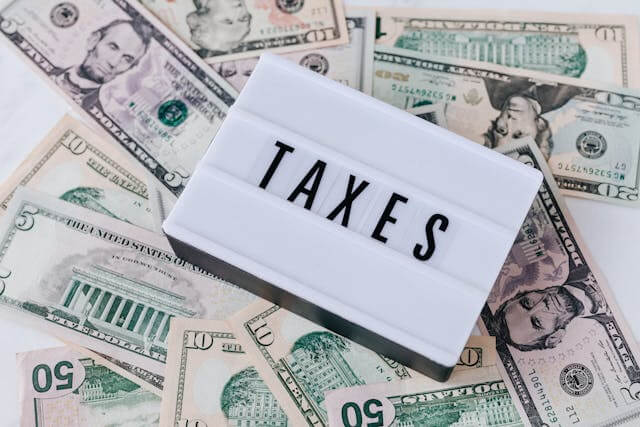
In most countries, your business needs to be registered as a legal entity to be assigned a tax ID. You would then use your assigned tax ID to honor your tax obligations and claim income tax returns and so on.
As such, even in instances where a business permit may not be required upfront, you will likely need it down the line.
Legitimacy
The dropshipping business model is largely based on trust. The customer entrusts you with their payment and suppliers entrust you with their brand.
However, as the saying goes: trust but verify. Given the endless online scams going around, most suppliers prefer to deal with a dropshipping store that they confirm is a legitimate business. A business license would go a long way in helping you prove this.
E-wallets and other digital payment processors may also require similar proof before they can release payments to you. These restrictions were put in place to curb money laundering, online scams, among other illegal online financial practices.
Dropshipping Policies of Popular eCommerce Marketplaces

Different eCommerce marketplaces have their own rules for dropshipping. While some fully support it, others have strict guidelines to prevent poor customer experiences. Here’s a quick overview of the dropshipping policies of major platforms:
Amazon
Allowed, but with restrictions – You can dropship on Amazon, but you must be the seller of record. This means:
- Your name (not the supplier’s) must appear on invoices and packaging.
- You cannot purchase products from another retailer and have them shipped to your customer (e.g., buying from Walmart and sending directly to an Amazon customer).
- You are responsible for returns and customer service.
Violating these rules can lead to account suspension.
eBay
Permitted, but only from wholesalers – eBay allows dropshipping as long as you fulfill orders from wholesale suppliers. However, you cannot dropship from another retailer (e.g., buying from Amazon and shipping to an eBay buyer).
- You are responsible for delivery times and product quality.
- Poor performance can lead to selling restrictions or account suspension.
Walmart Marketplace
Strictly regulated – Walmart discourages dropshipping unless you manage fulfillment professionally. Their rules include:
- You must own your inventory or have reliable fulfillment processes.
- Orders should ship on time and meet Walmart’s high customer service standards.
- Using another retailer (like Amazon) to fulfill Walmart orders is not allowed.
Etsy
Limited and niche-specific – Etsy is strict about its handmade and vintage product policies. Dropshipping on Etsy is only allowed if:
- You sell print-on-demand products (e.g., custom t-shirts via Printify or Printful).
- You design the product yourself, but a production partner handles fulfillment.
- Reselling mass-produced items from suppliers like AliExpress is not allowed.
Can You Dropship without an Agreement with the Supplier?
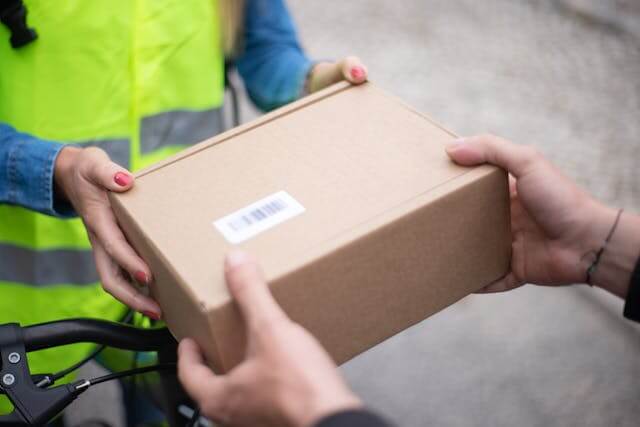
Yes, you can start dropshipping without a formal agreement with your supplier, especially when using platforms like AliExpress, CJdropshipping, or Spocket, where suppliers are already set up for dropshipping. However, operating without an agreement comes with risks.
Here’s why having an agreement or at least clear communication with your supplier is beneficial:
- Pricing & Profit Margins – Without a negotiated agreement, you may be paying standard retail prices, which can eat into your profits.
- Product Availability – Suppliers can run out of stock at any time. An agreement ensures you get updates on inventory levels.
- Shipping & Delivery Times – If you don’t discuss fulfillment times, you might end up with slow shipping that leads to customer complaints.
- Return & Refund Policies – Many suppliers have strict or unclear return policies. An agreement can help clarify how refunds and replacements are handled.
- Branding & Custom Packaging – Some suppliers offer private labeling or custom packaging, but this often requires an arrangement in advance.
When You Don’t Need a Supplier Agreement
- If you’re testing products and want to start quickly, you can begin without an agreement by using AliExpress or CJdropshipping.
- Many dropshipping suppliers are open to working with new sellers without requiring a contract.
When You Should Get an Agreement
- If you’re scaling and need consistent product quality and better pricing, a dropshipping agreement helps secure stable terms.
- If you’re using a private supplier instead of a marketplace, a contract helps protect your business from supply chain issues.
While an agreement isn’t mandatory, it gives you more control, stability, and better profit margins in the long run. If you’re serious about building a long-term business, negotiating terms with your supplier is a smart move.
Are There Instances When Dropshipping Would Be Illegal?
Yes, there are multiple scenarios in which your dropshipping business would be contravening the law. They include:
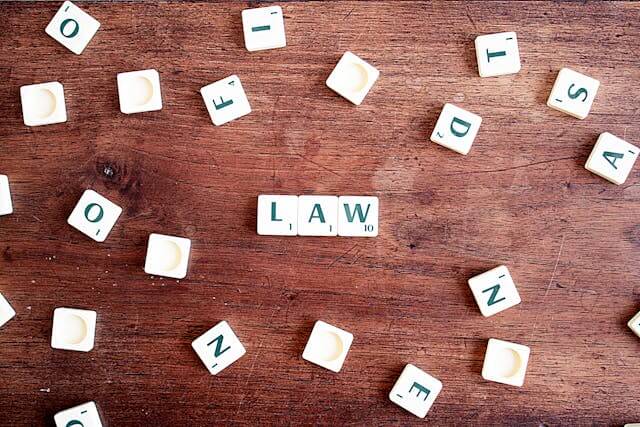
Selling Illegal Merchandise
As with any business, selling products that are outlawed in your country is against the law. It could result in your business license being revoked and you could end up being held personally liable.
Such products could include narcotics and controlled products like weapons or explosive substances. Countries under religious law may also limit the sale of items such as adult toys, alcohol, or drug-related paraphernalia like bongs.
As you choose a niche for your store, take some time to find out what items are banned in your jurisdiction.
Selling Harmful or Defective Products
Liability laws vary from country to country. However, in some jurisdictions, you (the seller) have a legal obligation not to sell harmful products to consumers. From an ethical standpoint, harmful/defective products would also be bad for your reputation.
Pay attention when buyers reach out to you with a complaint about a product you sold to them being defective. Make an effort to investigate the issue and follow up with your supplier. If necessary, pull the product from your product listing until the issue is resolved.
Where possible, it is best to offer your customers options for redress such as a refund or a replacement product.
Unfulfilled Orders
If a customer places an order and pays for it on your online platform, they are entitled to a delivery or a full refund. Failure to honor either of these provisions would be tantamount to fraud.
Admittedly, the failure to honor an order may not be your fault. Your suppliers could be experiencing delays or shortages in supply. Still, you remain legally obligated to your customer and should offer them a solution in good time.
Violating Copyright Laws
Copyright laws apply mostly to dropship stores that offer branded merchandise or print-on-demand products.
Branded merchandise includes products that have images or wording associated with brands, tv shows, or music bands. Such images or wordings are protected by copyright and intellectual property laws and should not be replicated without consent.
Similarly, if you offer print-on-demand products, it is best to work with either original designs or designs from sites that are expressly marked as free to use.
How Do I Protect My Dropship Store From Legal Liabilities?

By drafting terms and conditions for your business.
Terms and conditions tell your customers what to expect from your store in terms of service delivery and avenues for redress if they have any complaints. In essence, it is a legal framework that governs your relationship with your customers.
Such a framework should include:
A Privacy Policy
Best practice data protection policies require you to safeguard the private information of potential customers that visit your site.
You should not sell or use any of their personal data without their consent. Further, you should disclose the use of any data trackers and give your potential customers a chance to approve or decline such tracking.
These conditions should all be outlined in detail in your privacy policy page.
A Returns Policy
A customer could buy any of the products on your online store and find them defective or unsatisfactory. A returns policy outlines:
- What items are eligible for returns
- The duration within which returns can be made
- What percentage of the customer’s payment shall be refunded
As you draft your returns policy it may be best to have a glance at what your suppliers’ return policies are as well. Some may not even have the provision due to the nature of the products they offer.
You could choose to either:
- Incorporate bits of your suppliers’ return policies into your own.
- Have a standard return policy page but also specify the return conditions of a product after its description. For example, if a product is not eligible for return, you could specify that ‘This product once sold can not be returned.’
Business Disclaimers
Business disclaimers are meant to protect your business from liabilities.
Take for example, that you are a beauty dropship store. A health disclaimer would warn your potential customers that cosmetic products could have various side effects. They should, therefore, inspect the ingredients carefully and possibly seek dermatological advice.
Other business aspects you could have disclaimers for include external links and legal matters. A general disclaimer would equally be a great addition to have because it covers a broad variety of issues.
Best Practices for Running a Legitimate Dropshipping Store
Running a legal and trustworthy dropshipping business requires more than just finding a supplier and listing products.
Here are some best practices to make sure your store operates within the law while building a strong reputation.

Choosing reputable suppliers helps you avoid counterfeit products, shipping delays, and disputes over quality. A reliable supplier should provide genuine products, clear shipping policies, and responsive customer support.
Best practice: Verify your supplier’s legitimacy and request product samples before listing them in your store.
Be Transparent About Shipping Times and Policies
Many dropshipping products ship from overseas, which can mean longer delivery times. Misleading customers about shipping speeds or return policies can lead to complaints and chargebacks.
Best practice: Clearly display shipping estimates, return policies, and refund terms on your website.
Register Your Business and Handle Taxes Properly
Depending on your location, you may need a business license and must comply with tax regulations, such as collecting and remitting sales tax or VAT. Research local business laws, register your company if required, and consult a tax professional to stay compliant.
Protect Customer Data and Use Secure Payment Methods
Handling personal information incorrectly can violate data protection laws like GDPR or CCPA. Secure payment processing is also crucial to prevent fraud. Use trusted payment gateways like PayPal, Stripe, or Shopify Payments, and avoid storing sensitive customer data.
Avoid Selling Restricted or High-Risk Products
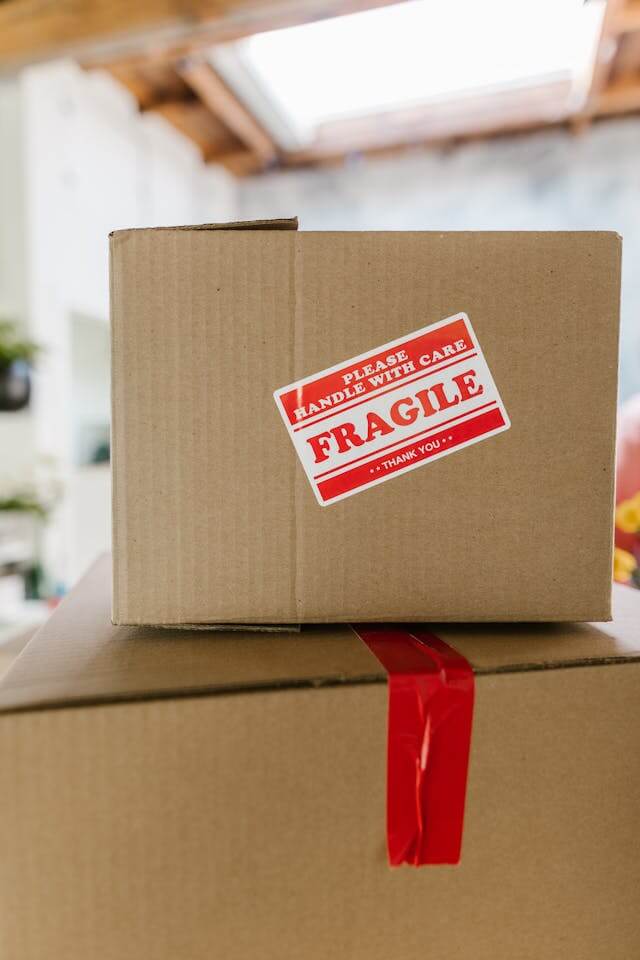
Certain products, like branded replicas, supplements, or electronics, may require special certifications or licenses. Selling restricted items without proper authorization can lead to legal issues or account suspensions.
Research product regulations before listing them and comply with marketplace policies.
Use Honest Marketing and Product Descriptions
Overpromising on product quality, using fake reviews, or making false claims can lead to legal trouble and a damaged reputation. Provide accurate product descriptions, use real customer testimonials, and ensure your advertising is truthful.
How to Start Dropshipping Legally (Step-by-Step)
Starting a dropshipping business is simple, but making it legal requires careful planning.
We’ve talked about how to start dropshipping in detail in another guide, but in a nutshell, here are some practical steps to help you launch a compliant store.
Step 1: Register Your Business
Start by registering your e-commerce store as a limited liability company to gain legitimacy and limit your exposure to legal issues. Once you obtain a business license, you could also proceed to set up a tax ID.
Step 2: Set Up Your Online Dropship Store
Compare E-commerce platforms and consider their terms and conditions. Choose one that you feel is suitable for your business not just now but also later when you may want to scale your business.

Other factors worth considering include:
- How easy is it to use the platform?
- What payment options will be available to your customers?
- Are there restrictions on the products or dropshipping suppliers you can partner with?
- Does the platform offer dropshipping automation options?
- Is the platform a good match for the dropshipping niche you have chosen?
Dropshipping platforms like Shopify may be easy to set up all on your own. However, when it comes to tasks like setting up your site’s legal framework, seek out the services of a legal professional.
Step 3: Carefully Evaluate and Choose Your Dropshipping Suppliers
Your choice of dropshipping suppliers can make or break your business. Aim for one or more with a great variety of products and reliable service delivery. In addition to this, consider:
- Their Legitimacy: a registered dropshipping supplier with experience in the business is always a safer bet.
- The Authenticity and Quality of Their Products: AliExpress, for example, offers cheap products but their quality is often wanting and their delivery times are rather lengthy.
- Their Fulfillment Capabilities: how far can your supplier deliver their products? How long will it take and how much will it cost? All these factors affect service delivery to your customers and are worth examining.
Where possible, aim for a dropshipping supplier that offers a broad scope of services. Private labeling, white labeling, product sourcing, and even helpful resources on how to navigate dropshipping could all help you keep your business in check.
On this too, it may be worth consulting a legal professional to ensure that the terms offered by your supplier are fair. Your legal counsel could also help you understand what the supplier’s agreement/contract demands of you.
FAQs
Is Dropshipping Considered Unethical?
Dropshipping itself is not unethical, but some business practices within the model can be. Issues like false advertising, long shipping times without transparency, and selling low-quality or counterfeit products can lead to customer dissatisfaction.
To run an ethical dropshipping business, always be honest about product quality, shipping times, and return policies.
Can You Get Sued for Dropshipping?
Yes, dropshippers can face lawsuits if they sell counterfeit goods, make false claims about products, or violate consumer protection laws.
For example, falsely advertising a product as “FDA-approved” when it isn’t can lead to legal action.
To avoid legal trouble, source products from reliable suppliers, use accurate product descriptions, and comply with marketplace and advertising rules.
Do You Have to Pay Taxes on Dropshipping?
Yes, dropshipping businesses must pay taxes based on their country’s regulations. This typically includes income tax and, in some cases, sales tax.
In the U.S., sales tax collection depends on whether you have “nexus” (a business presence) in a state.
Many eCommerce platforms allow you to set up automatic tax collection, and using software like TaxJar can help you stay compliant.
Can You Dropship Branded Products Legally?
You can only dropship branded products legally if you have explicit permission from the brand or manufacturer.
Selling branded items without authorization can result in copyright or trademark infringement claims.
If you want to sell name-brand products, work with suppliers who have distribution rights or apply for direct partnerships with brands.
Does Dropshipping Violate Amazon and eBay Policies?
Dropshipping is allowed on Amazon and eBay, but with strict conditions. Amazon requires you to be the seller of record, meaning you must handle customer service and returns while ensuring products don’t come with third-party invoices or packaging.
eBay permits dropshipping, but only from wholesale suppliers, not from retailers like Walmart or AliExpress. Violating these rules can lead to account suspension.
Are There Countries Where Dropshipping is Illegal?
Dropshipping is legal in most countries, but some have strict eCommerce or import regulations. For example, countries with high import restrictions or strict tax policies may limit certain types of dropshipping.
It’s essential to check local laws before selling in specific regions. Additionally, payment gateways like PayPal or Stripe may not be available in all countries, which can affect your ability to process transactions.
Winding Up
Dropshipping is a legitimate business model that can earn you great profits. As long as you follow the regulations that govern the industry and seek legal guidance where necessary, you will have nothing to worry about.
We, at NicheDropshipping, have years of experience in all matters dropshipping. From product sourcing to warehousing and worldwide fulfillment, our services cater to all the dropshipping needs you may have.
Additionally, we offer informative resources and advice to help you grow your business. Contact us today, to learn more about how our services could set your business on the right path.
